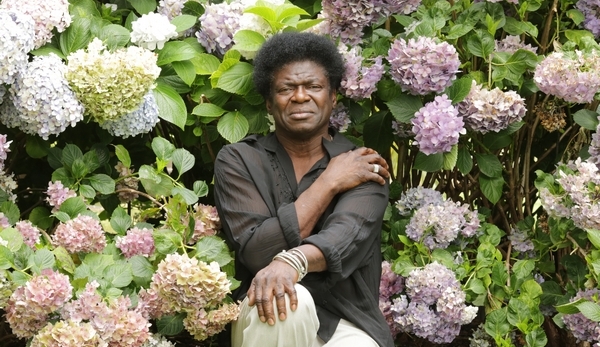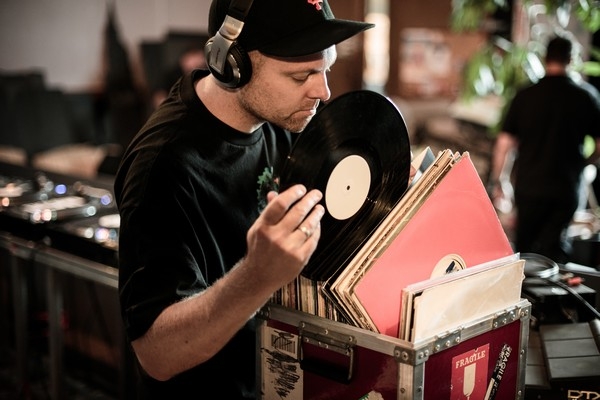“They tell you on the news if you don’t have to go out, don’t go out,” he says. “But I have too many chores that I have to do, cold or no cold. I can’t control nature. That is just how it is and this planet don’t have to do what I want it do. I just got to learn how to deal with it and live with it. When I get up in the morning, sometimes I have the blues, but I say, ‘Lord, thank you.’ It could be worse, I say, ‘Thank you for the strength that I can keep going’.”
Fortitude has long been Bradley’s greatest ally. The good-natured soulman endured a long road of struggle and set backs before his otherworldly voice finally showed up on an album. As depicted in the 2012 documentary Soul of America,Bradley was born in Florida and had an unstable childhood, moving around the US to live with various family members before leaving home at 14 to fend for himself.
“I think back to the days that I was living in the streets – living out in the snow and going all through the changes – and I survived all of that,” he says. “The snow that we having nowadays is nothing compared to back in the ‘60s. I remember when the snow used to be right up to my waist. You got to learn to survive in the snow and how to get through. And that’s what I learned about life, I learned how to survive.”
It’s been a hard-knock journey all right, but Bradley’s love of music has always remained secure. However, it was several decades before his undeniable vocal talent began reaping concrete benefits. Things started to take shape in the late ‘90s, when Bradley scored a regular gig impersonating James Brown (a role he pulls off with preeminent ease). Then, in the early years of this millennium, he made himself known to Gabriel Roth at Daptone Records, who soon offered him a contract. “It always has been my dream,” Bradley says. “I just never closed my dreams. I always prayed and asked God for a chance. Now that I’m out here and I’m meeting a lot of people, it’s making me open up to people. I’d closed up; I’d been through so much I just didn’t trust nobody.”
Having recognised the magnitude of Bradley’s talent, Roth introduced him to guitarist and producer Tom Brenneck (The Budos Band, Menahan Street Band). Over the course of the noughties, Bradley and Brenneck cooked up a series of singles, which culminated in the release of Bradley’s debut album No Time For Dreaming in 2011. “Me and Tom write together and Tommy has his ways and I have my ways,” he says. “Some things we don’t agree with, some things we do agree with, and sometimes I just have to say, ‘OK, I’ll do it the way he wants.’ So I go his way and try to find the emphasis and deepness of me to give it to him the way he wants it.”
In 2013, Bradley delivered his second LP Victim of Love,again in coordination with Brenneck. Both of Bradley’s records flaunt his affection for funk, soul and R&B. However, by virtue of his bone-tingling vocal apparatus, and Menahan Street Band’s forceful instrumentation, neither album sounds like a dusty artefact recovered from the distant past. Rather, much like his label mate Sharon Jones, Bradley’s recorded output is surprisingly fresh.
Along with his powerful vocal depth, Bradley’s lyrics are liable to inflict a heavy blow. “When my heart hurts, you get some music out of me,” he says. “You get some feelings that you can feel down in your soul, and you can look inside your own life and know where it’s coming from. They come from something that you’ve been through, that I may touch your soul in that one spot. I’m a deep singer, I’m a spiritual singer, a soul singer, I sing from the heart.”
Anyone who caught Bradley live on either of his two Australian tours (both of which included a triumphant Golden Plains appearance) will attest to the man’s vivid beating heart. Those who’re yet to encounter this phenomenon needn’t fret, as he’ll be back in just a few weeks for Bluesfest and sideshows. As last time, Bradley will be joined on stage by his Extraordinaires – a group of savvy young players that are getting the best possible education in the fine art of playing straight from the heart.
“They are eager to learn and they are learning very greatly,” Bradley says. “But I got to stick with them to bring the quality that the soul really wants. They are young and they are willing to give me very good music. They are very young guys and they are very beautiful guys. I have no bad comments to say about them.”
In the lead up to this tour, Bradley’s been taking refuge from the winter by dwelling in the studio, working on album number three. Once again, Brenneck’s his trusted offsider. However, this time around, Bradley’s looking to push his artistic capacity even further than before.
“I feel a satisfaction, but not totally,” he says of his two existing LPs. “I feel maybe 90 per cent satisfaction and I want the other ten per cent. The more I hear, the more I want to give. Especially at my age now, I’m demanding for the quality. I don’t know how long I’m going to be on this earth and I want to give my debut to this earth before I leave.
“I want to create my own style,” he continues. “I’m getting it now, don’t get me wrong, I’m getting some of the things that I want. But my dynamics – I want a bass that can rock my soul, I want a lead that can steal me totally. I want you to be able to get into it too.”
It’s plain to see Bradley’s long road to the top has filled him with a pronounced determination, which has nothing to do with gaining celebrity or selling records. Rather, the goal he’s pursuing is creative self-realisation. Having been granted the opportunity to express himself in front of a mass audience, he endeavours to exercise the full breadth of his emotive propensity.
“I wanted to be able to reach everybody,” he says. “I want to leave a little touch to everybody. This is my goal now at my age. I have no time to waste. I want to be able to give out, the quality that I always want to give out and the only way I can give it out is as deep as I need. I’ve been through trials and tribulations, so the deeper my music will come out.
“You might say right now, ‘Charles Bradley, I want a t-bone steak.’ And I would say ‘No, I’m going to cut you a piece of rump,’ and I’m going to put all the flavour that you want on it. You’re not getting a t-bone steak; what you’re getting is a rump with my beautiful flavour and all of the things you like on it, so it’s not going to be what you’re really asking for. I want to give you the best, OK? You give me this and I put the flavour to it, you’ll like it, it tastes good. But I want to give you better.”
BY AUGUSTUS WELBY







